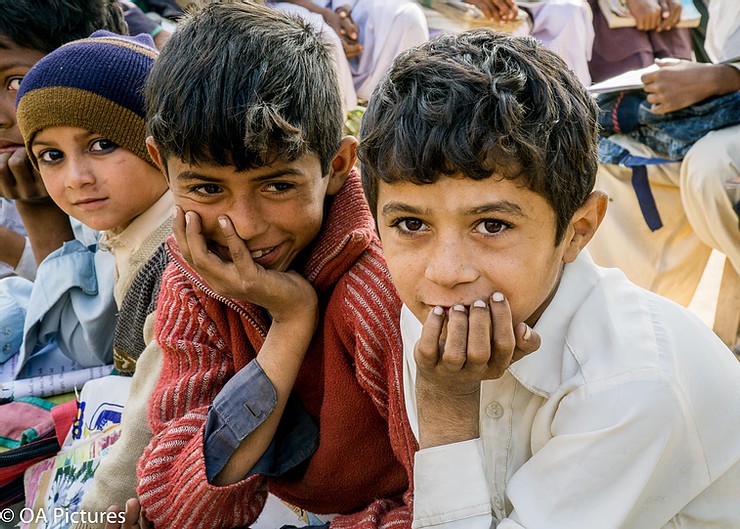Disclaimer: Website Under Maintenance: Our website is currently under maintenance. We apologize for any inconveniences.

Pakistan Coalition for Education (PCE) has been tracking education budget at the district level over the last three years. The tracking exercise entailed a series of district level consultations with local stakeholders that included legislators, major political parties, school administrators and local governments on education budgets to ensure equitable and inclusive access to quality education. Through these consultations it came to light that there is a communication and coordination gap between the School Management, community members and the district administration. To overcome this challenge, PCE along with its member organization HWA Foundation, formed a People's Action Group for Education (PAGE) in District Ghotki. The sole purpose of this group is to work on volunteer basis to identify, prioritize and take action for pertinent education issues at the local level. Over the course of last few months, PAGE has been working effectively to achieve its goal and has produced tangible results.
What is People's Action Group for Education (PAGE)?
Members of the group are selected on volunteer basis through consultative meetings held at the district level. The group has representation from Local Government, District Education Department, School Management Committees, parents, Head Teachers and members of the Media.
What does PAGE do?
Since its inception, PAGE has held numerous meetings in District Ghotki, supported by HWA Foundation who has provided them technical and logistical support. PCE conducted a school based survey of two selected UCs (Ghotki-1 and Ruk). The findings of the survey were shared with PAGE which helped the group in identifying key issues at the school level. PAGE held an in-depth meeting to prioritize the highlighted issues and drafted a plan of action. Till date, PAGE has met four (4) times with the district education department and has become citizen's voice in the district.
What has PAGE achieved so far?
PAGE was able to accomplish tangible results in a very short period of time with great support from the community members. It worked tirelessly towards resolution of issues based on evidence and deliberation. Following are the key achievements of PAGE.
1
Through meetings with the district administration, PAGE successfully advocated to be recognized as the designated communication and coordination group for education in District Ghotki. The social welfare department issued an official notification in this regard.
2
PAGE, through its deliberations, highlighted the need to have School Improvement Plans (SIP) for the SMCs to effectively address needs of the schools. Working in close coordination with School Management Committees, PAGE helped in devising seven (7) SIPs.
3
The District Officer (Education) Primary was preparing a list of potential primary schools that need infrastructural repairs and has missing basic facilities. PAGE consulted community members to identify such schools. Two schools were selected that were not on the official list. PAGE successfully advocated for these schools to be added in the list.
4
Through active participation of Media representative in PAGE, seven (7) news reports were prepared and aired on ARY News highlighting the deplorable condition of schools in District Ghotki.
Does PAGE have a future?
PAGE is currently holding meetings with the District Education Department to adopt a community-based school in Saeedo Chachar area of Ghotki. This community school has enrolment of over 60 students who do not have access to a government school in the vicinity. PAGE is in process of writing an official letter to the district administration for this purpose. It is also working with the local newspapers to publish stories about the school conditions in the district. With reference to SIPs, it is currently working with another five (5) schools to develop their SIPs as well. Furthermore, the group is collecting more information with regards to school condition and missing facilities which will be further highlighted through more news reports, reaching out to a wider audience.
What have we learnt from PAGE?
PAGE has been an effective advocacy group working at the district level highlighting and resolving education issues at the local level. It is a great case of citizen participation and shows great potential towards achieving the common goal of access to equitable and quality education. It has successfully bridged the gap between the communities and the district administration and has become citizen's voice in the area. Community members have also started to recognize the group and are using this platform to reach out to the higher authorities with their complaints and suggestions. Though the group works on a volunteer basis, it needs technical and logistical support from other civil society organizations. To sustain this initiative it needs to be institutionalized through the support of development partners and replicated in other districts with similar circumstances.

About the writer: Umar Bin Tahir is a Policy Advocacy Coordinator with the Pakistan Coalition for Education (PCE). He tweets at @UmarBinTahir